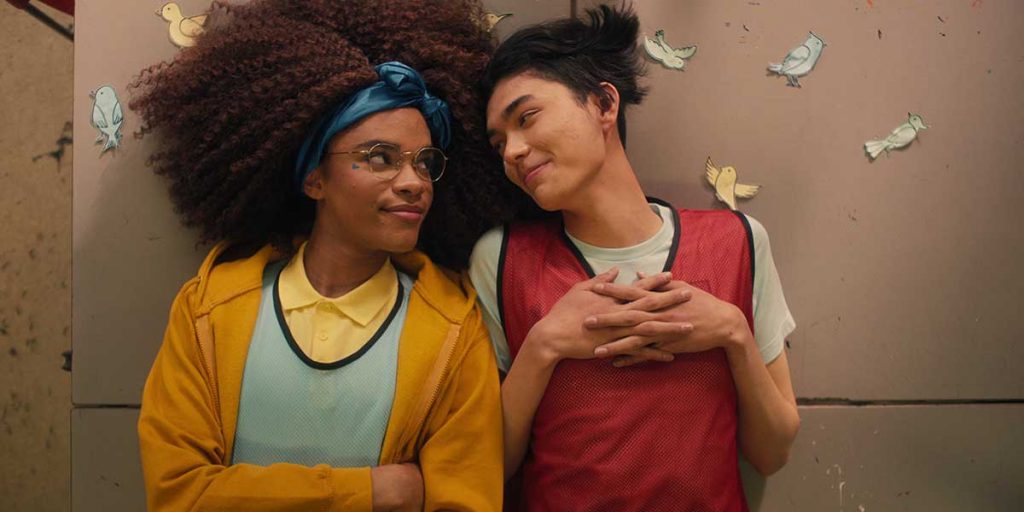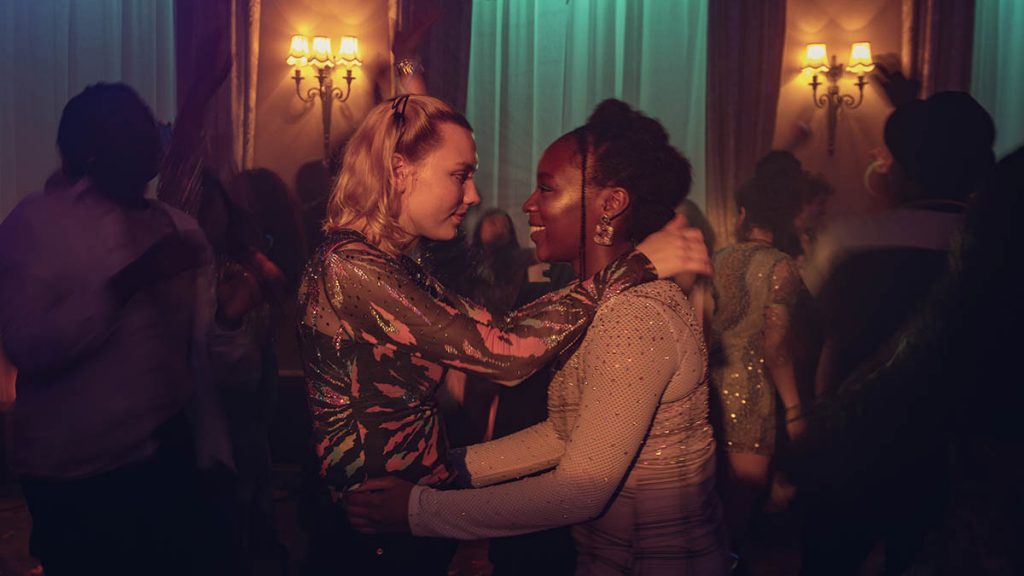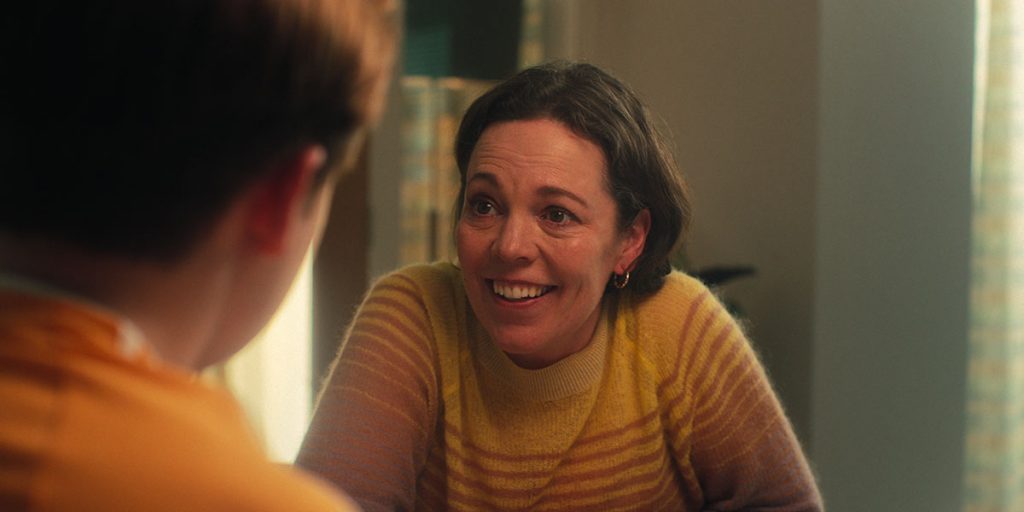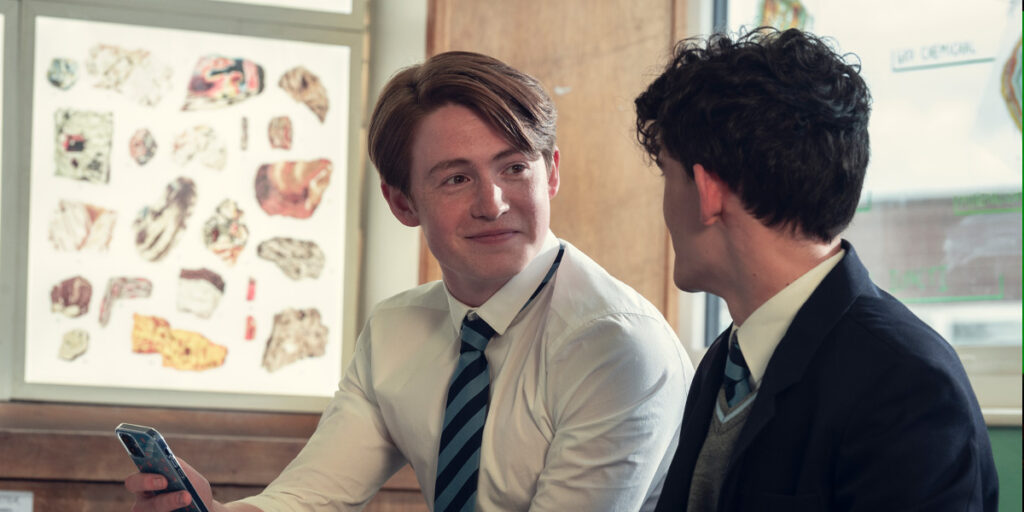Heartstopper is revolutionary representation for LGBTQ+ teens, offering affectionally acted and wittily written escapist entertainment from start-to-finish.
It’s been seven long years since gay marriage was legalized in the United States – a major milestone in the decades-long gay rights movement, and one that, to many, looked like the end of a tirelessly fought battle that started all the way back 1960s. And yet, these days, the joy and jubilation that was felt around the world on June 26, 2015 feels like a fantasy. The next year, America elected a bigoted right-wing ideologue to the White House who brought along a running mate who had previously supported the controversial practice known as conversion therapy and amendments to the U.S. Constitution that would define marriage as solely between one man and one woman. And though Donald Trump and Mike Pence weren’t re-elected in 2020, their caustic campaign had already done its damage to this country by that point, opening the door for more members of the Republican Party to target continually mistreated minorities, and particularly, those in the LGBTQ+ community.
This February, Texas Governor Greg Abbott called for the state’s Department of Family and Protective Services to begin investigating the parents of trans children who allowed them to access gender-affirming medical care, labeling such care as “child abuse” under state law and threatening to jail these parents. Not to be outdone in insidiousness, Florida Governor Ron DeSantis signed the already infamous “Don’t Say Gay” bill into law at the end of March, which stated that “classroom instruction by school personnel on third parties on sexual orientation or gender identity may not occur in kindergarten through grade 3 or in a manner that is not age-appropriate or developmentally appropriate for students in accordance with state standards” – and though it only explicitly targeted K-3 teachers, don’t think for a second that Republicans would hesitate to use it against others teaching subjects they disagreed with as well.
To make matters worse, despite constant revolutionary representation for the LGBTQ+ community on both the big and small screen, studios are constantly receiving demands to have films and shows censored by foreign countries – and quickly capitulating to these calls for action. Marvel’s Eternals was banned across much of the Gulf in November for featuring the franchise’s first gay couple and first gay superhero. West Side Story couldn’t play in cinemas in Saudi Arabia, the U.A.E., Quatar, Bahrain, Oman, and Kuwait due to the inclusion of a transgender character. Warner Bros. removed dialogue about Dumbledore and Grindelwald’s relationship from Fantastic Beasts: The Secrets of Dumbledore to allow the film to play in China. And, just last week, we received word that Doctor Strange in the Multiverse of Madness would be banned in Saudi Arabia for introducing the new queer teen character America Chavez, with, once again, no protest from Disney or Marvel.

Every day, all around the world, LGBTQ+ youth are receiving more messages than ever that they are not wanted, their mere existence is inherently “improper,” and they can be forced into silence by society if necessary. The progress of the past six decades seems like a pipe dream, as we witness conservatives pull from the homophobic playbook of the 80s to try and convince others that the LGBTQ+ community is a danger to society and a threat to the “natural order of things.” And that’s what makes a show like Netflix’s Heartstopper – where gay teens are allowed to love each other out loud without having their identities or affection banned, censored, or shamed – not only tremendously timely, but also enormously essential to the survival of the queer kids of Gen Z, who need a lifeline now more than ever and a reason to believe that things can and will get better.
Based on the ongoing webcomic of the same name by Alice Oseman, Hearstopper follows Truham Grammar High School student Charlie Spring (newcomer Joe Locke, who lights up the screen) as he navigates year 10 after coming out as gay and being made the subject of continuous homophobic bullying. Though he’s in a relationship with the closeted Ben Hope (Sebastian Croft, of Game of Thrones), Ben acts like he doesn’t know Charlie when they’re in public, only further contributing to the decline of Charlie’s self-confidence. There is one silver lining though: in his new form class, Charlie is assigned to sit next to popular rugby player Nick Nelson (Kit Connor, of Rocketman and His Dark Materials), whom he quickly falls for as they develop a fast friendship. But, despite their increasing closeness, does Nick feel the same way? Or is he truly just Charlie’s “supportive straight friend”?
For those who feel like they’ve seen this plot play out in a number of conventional and clichéd coming-of-age dramedies over the years, let me stop you right there. To start, although Heartstopper undoubtedly toys with the “a seemingly unrequited crush is soon returned as two friends grapple with their growing feelings for one another” trope, it’s almost unheard of to center this story around two gay leads – and two gay high schoolers, who are still coming-to-terms with their sexualities, no less. Love, Simon (the first film by a major Hollywood studio to focus on a gay teenage romance) is perhaps the last time we saw such a saga unfold, and even then, the couple didn’t get together until the end, with most of the focus firmly on Simon’s (Nick Robinson’s) own development. Here, Charlie and Nick are given equal attention, depicting two very different experiences for queer teens.
Furthermore, Heartstopper is even more notable for telling a queer love story that isn’t defined by trauma or tragedy. There’s a time and place for such stories – hell, Brokeback Mountain, Call Me by Your Name, and The Power of the Dog were nominated for Best Picture after all – but when the real world is already as wicked as it is these days for queer kids, they deserve to see themselves experiencing the same romantic elation their straight classmates enjoy, because it is possible for them too. And though Truham might not always be the most accommodating of the LGBTQ+ community, the burgeoning relationship between Charlie and Nick is still one full of overwhelming optimism and engrossing euphoria at the very idea of being young and in love. Additionally, their erratic and ever-shifting emotions are creatively captured by Heartstopper’s adorable animations interspersed throughout the narrative: the touching of hands literally elicits electricity, looking at the one you love evokes “starry eyes,” and so on and so forth.

However, while all of these attributes of Hearstopper’s story and style are admirable (and its radical representation for sure should not be overlooked), it still has to give us compelling and complex characters to be engaged in throughout all eight episodes – and, thankfully, Oseman, adapting her own work here, succeeds stupendously in this regard. In fact, the true charm of Heartstopper is its characters and how they continually defy all categorization, feeling as multi-faceted and multidimensional as they likely are in Oseman’s own mind. In some ways, you could see certain gay stereotypes in Charlie’s characterization, but in others, he’s far richer a role than you first realized, with unexpected pursuits and passions you can’t spot on the surface. The same can be said for Tao (William Gao), Charlie’s best friend at Truham who can also be seen as another outcast, only on account of being one of the only Asians at their school, and Tara (Corrina Brown) and Darcy (Kizzy Edgell), an interracial lesbian couple at Harvey Greene Grammar School for Girls who refuse to be pigeonholed into certain classifications by their peers’ perception of them.
However, aside from the adorkably endearing Charlie, there are two main characters who stand out alongside him. One would be Yasmin Finney’s Elle, a Black trans woman who transfers to Harvey Greene from Truham after coming out and finds herself forced to form an entirely new identity on a whim at one of the most formative moments in her life – and at a school in which many of her cis peers fail to even give her the time of day – which is not only an incredibly important story to be told at this point in time but also one that hasn’t ever been seen in a YA series of this kind. Teenage trans representation has thus far been limited to Euphoria’s Jules (passionately performed by Hunter Schafer), but while that show is geared towards a more mature audience, and also showcases its star mostly past her social transition, Heartstopper tells a trans tale that all audiences can take part in, and one in which the trans woman in question is actively navigating settings that are still adjusting from seeing her as male to seeing her as female. (And, how lovely is it to also see a trans woman pined after by a self-proclaimed straight man – Gao’s Tao – with no apprehension whatsoever?).
The second standout character aside from Charlie (and arguably the standout of the entire show) is Kit Connor’s Nick. While Charlie isn’t without his fair share of struggles as well – the bullies, Ben, etc. – there’s something special about Nick’s journey in particular, and what it represents for young men battling with their burgeoning bisexuality. As Nick grows from being captivated by Charlie to suddenly seeking to protect him to finally becoming intimately interested in him romantically, he simultaneously wrestles with redefining his sexuality after primarily being attracted to women his whole life, and still being so, despite his current concentration on Charlie. There’s always been a social stigma against bisexual men – who are constantly told they’re “really just gay” and haven’t made up their minds yet or “can’t be trusted” by prospective partners on account of liking men and woman – but such a stigma is amplified for men (and especially young men) like Nick, who don’t “look the part” of being queer whatsoever, presenting as masculine and athletic.

All of this makes it all the more inspiring to see Nick to come to the conclusion that he is bisexual all on his own – escalating from questioning his sexuality to being curious about it, experimenting with it, and naming it on his own time and on his own terms – a label that he vehemently defends as he comes out to his mother Sarah (Olivia Colman, of The Favourite and The Lost Daughter) at the end of the series. Though she accepts her son as he is, she also tells him that, “you don’t have to say you like girls if you don’t,” to which Nick replies, “It’s definitely not just guys,” as Oseman refrains from playing into the trope of the “straight guy/girl” who only has one gay crush (Charlie, in this case). To see a teen so sure of his bisexuality – and especially a teen boy like Nick, who has so many additional obstacles to overcome – and so utterly unashamed of the fact is a pure beauty to behold, and one that will undeniably save so many queer lives.
Though Oseman deserves considerable credit for creating these characters, the ensemble cast is equally deserving of commendation, with Connor perhaps serving as the star of the series (and how could he not, with such a stirring storyline?), but Finney isn’t far behind, and Locke too is a lovely lead with a powerful screen presence, while Corrina Brown also gets several scenes to showcase her raw talent, particularly as her Tara bears the brunt of the torment directed towards her and Darcy’s relationship. Gao and Edgell are affable additions as well – with hopefully even more to do in the prospective Season 2 – while, in smaller capacities, Rhea Norwood (as Imogen, a female classmate of Nick’s who initially has a crush on him), Sebastian Croft (who makes for a most maddening antagonist as the bothersome Ben Hope), and Fisayo Akinade (as the altruistic Mr. Ajayi, Charlie’s queer teacher ally) all leave lasting impressions as well.
Perfectly paced, wittily written, affectionately acted, and overall simply compassionately constructed from start-to-finish, there’s nary a flaw to be found throughout any of Heartstopper’s eight episodes. As a piece of YA fiction, it is fantastical fun filled with diverting dialogue and colorful, complicated characters who experience familiar emotions for queer viewers while still undergoing their own distinctive development, but as an act of activist art for the LGBTQ+ community (and specifically, LGBTQ+ youth) it is an influential, inspirational, and indispensable artifact that will offer hope and happiness to generations to come and additionally encourage even more artists to formulate their own escapist entertainment for queer audiences, showcasing a world not defined by our struggles but by all of the ways we can derive satisfaction from it if we know where to look, and who to surround ourselves with.
Heartstopper is now available to watch on Netflix. Read our reviews of Heartstopper Season 2 and our list of 5 Coming-of-Age Films to Watch if you Liked Heartstopper!

